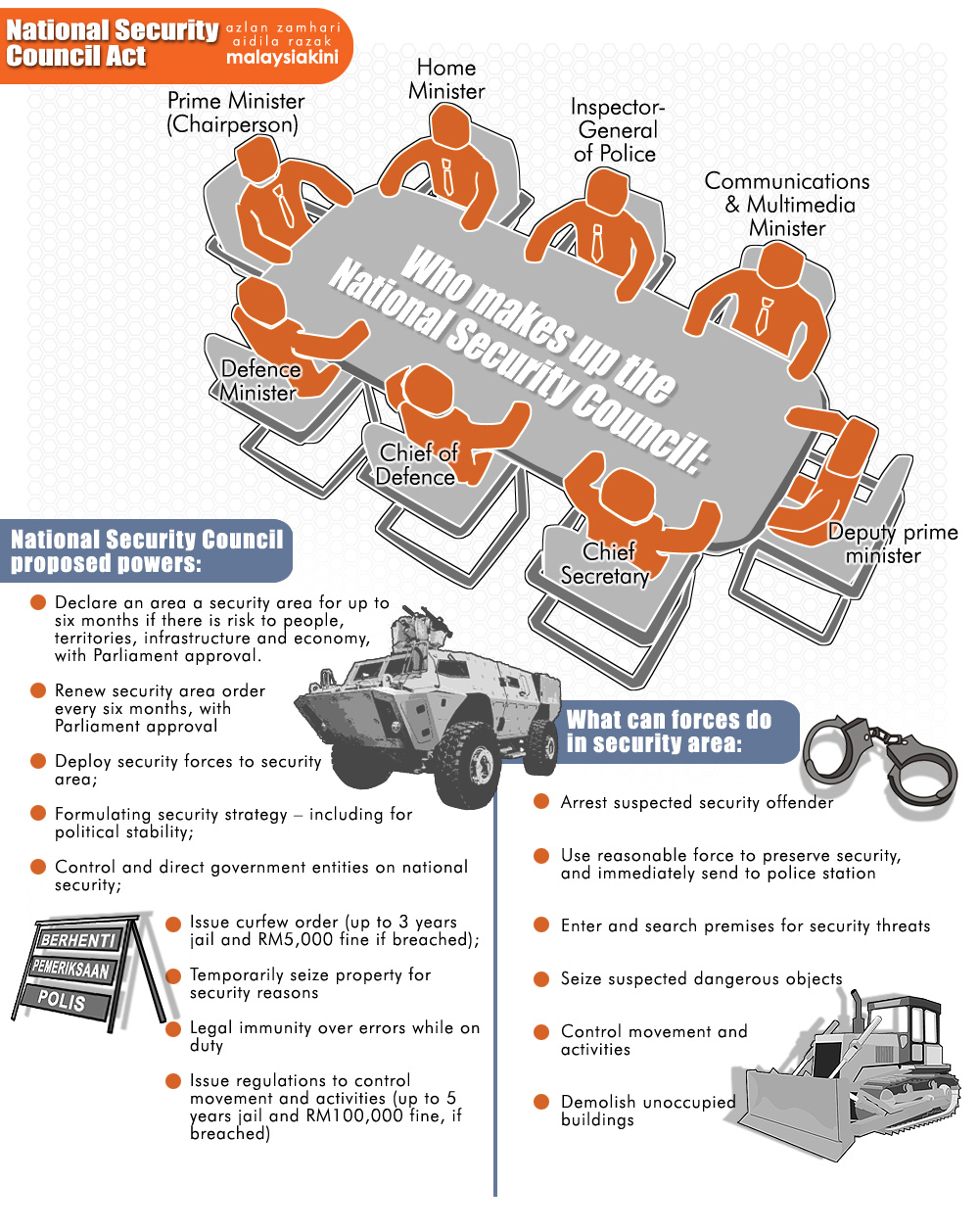Taking into account the severity of the threats to national security and defence, the Malaysian government has appointed a military officer as the director-general of the National Security Council, it was announced in New York yesterday.
Malaysian Deputy Prime Minister and Home Minister Ahmad Zahid Hamidi, who made the announcement, said Chief of Defence Forces Gen Zulkifeli Mohd Zin has been appointed the first director-general of the council.
It is learnt that Zulkifeli’s appointment took effect on Aug 15. Up to now the council had a civilian occupying the post of secretary.
“In view of the threats to national security and defence, the government decided that a police or military officer should be in charge of the council,” Zahid said at a dinner with officers and staff of the Malaysian Permanent Mission to the United Nations and government agencies operating in New York, at the mission office in the city.
He also said that more police and military officers with experience in national security and defence matters would be appointed to the council.
Ahmad Zahid also urged Malaysians not to take lightly the domestic and external threats to national security and defence.
He said Zulkifeli’s appointment was a move to strengthen the National Security Council to be like the council in the United States.
‘Don’t underestimate threat to security and defence’
He advised the people to view the matter positively and not to underestimate the threats to the country’s security and defence.
The national security and defence policy was drawn up by combining the synergies of duties between the Royal Malaysia Police and the Malaysian Armed Forces, he said.
Ahmad Zahid said the people could have differences of opinion in politics and that this was encouraged, but in the matter of national security and defence, they must be united.
He said the people should not assume that terror attacks which occurred abroad would not take place in Malaysia.
“The question is when and where they could take place,” he said.
Ahmad Zahid also said that there existed a group that called itself ‘Khalifah Nusantara’ which wanted to establish a so-called Islamic empire in the archipelago with its members active in Singapore, Malaysia, Indonesia and Brunei Darussalam.
He said the group was committing terror attacks in the region, and added that the bombing at the Movida nightclub in Puchong, Selangor, on June 28 was believed to be the first Islamic State (IS) attack in Malaysia.
The people must be vigilant against further attacks and should not leave the task of preventing such occurrences only to the police and military.
“Some people are bent on pointing a finger at the security and defence forces whenever a terror attack occurs but in other countries the people back their police and military,” he said.
Total defence approach
The task of maintaining security and defence should not be left to the police and military alone, he said, adding that the ‘Hanruh’ total defence approach should be adopted that involved the people as well.
In this connection, he said, the Volunteer Smartphone Patrol team was launched on Aug 16 to help channel information on crime to a command centre for follow-up action to be taken.
This, he said, would be able to reduce dependence on the surveillance system through closed circuit television cameras to check crime in hotspots.
Ahmad Zahid said this approach mobilised the People’s Volunteer Corps (Rela), Civil Defence Corps, community policing and Rakan Cop (Friends of Police) involving five million people, with the initial participation of 5,000.
These “eyes and ears” of the security forces would use mobile phones to channel information real time to the command centre, he said.
He urged the people to register as members of the team to help the police and military and not take for granted security and defence issues.
Ahmad Zahid is in the United States on a five-day working visit beginning Aug 22.
He also chaired a United Nations Security Council high-level open debate on non-proliferation of weapons of mass destruction on Tuesday at the UN headquarters.
Malaysia is a non-permanent member of the Security Council from Jan 1 last year until the end of this year, and is holding the rotating presidency of the highest decision-making body of the UN for this month.
Ahmad Zahid’s wife Hamidah Khamis and Malaysia’s Permanent Representative to the United Nations Ramlan Ibrahim also attended the dinner.
- Bernama


